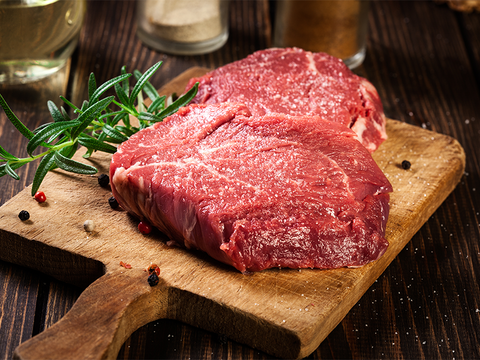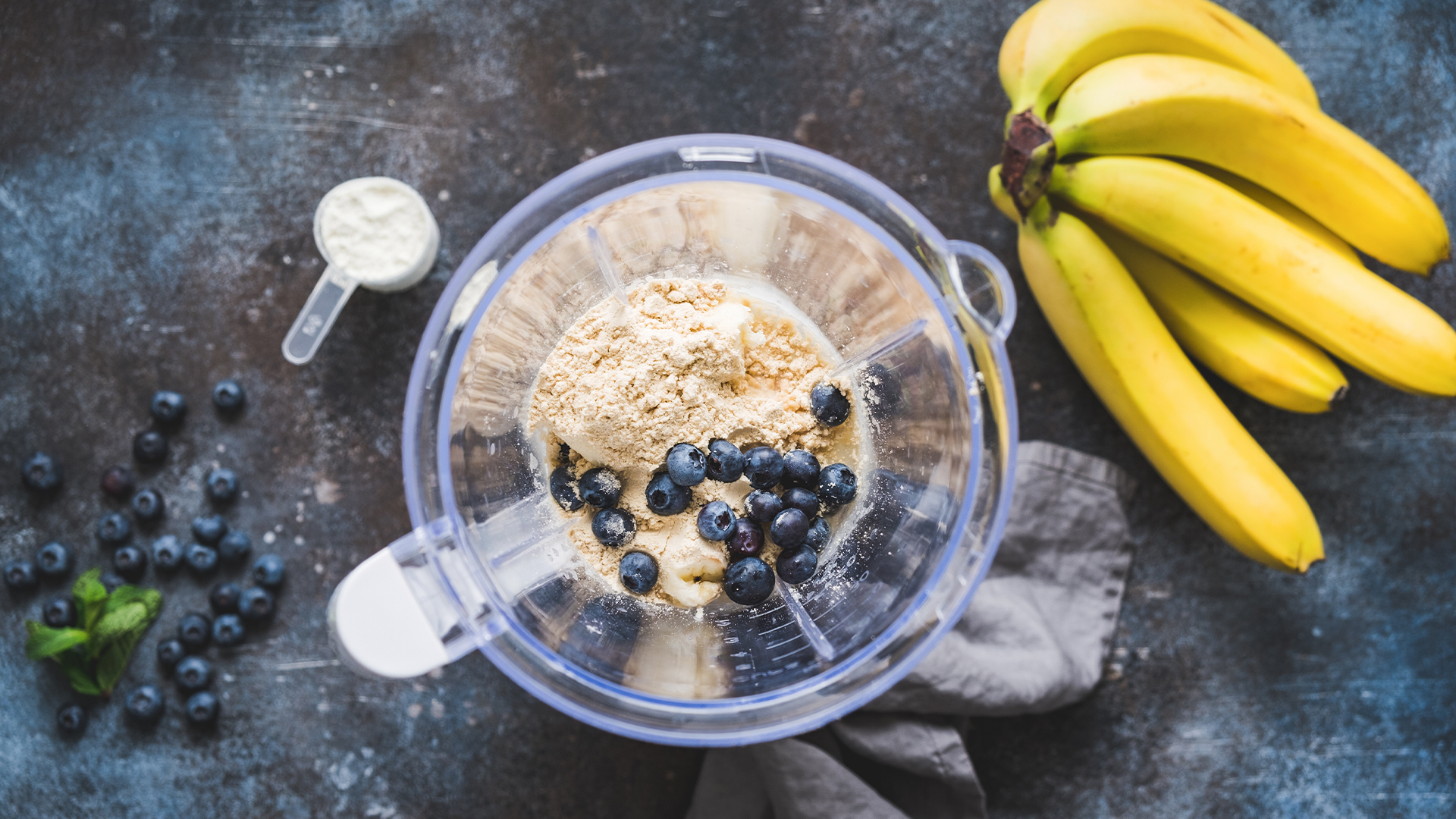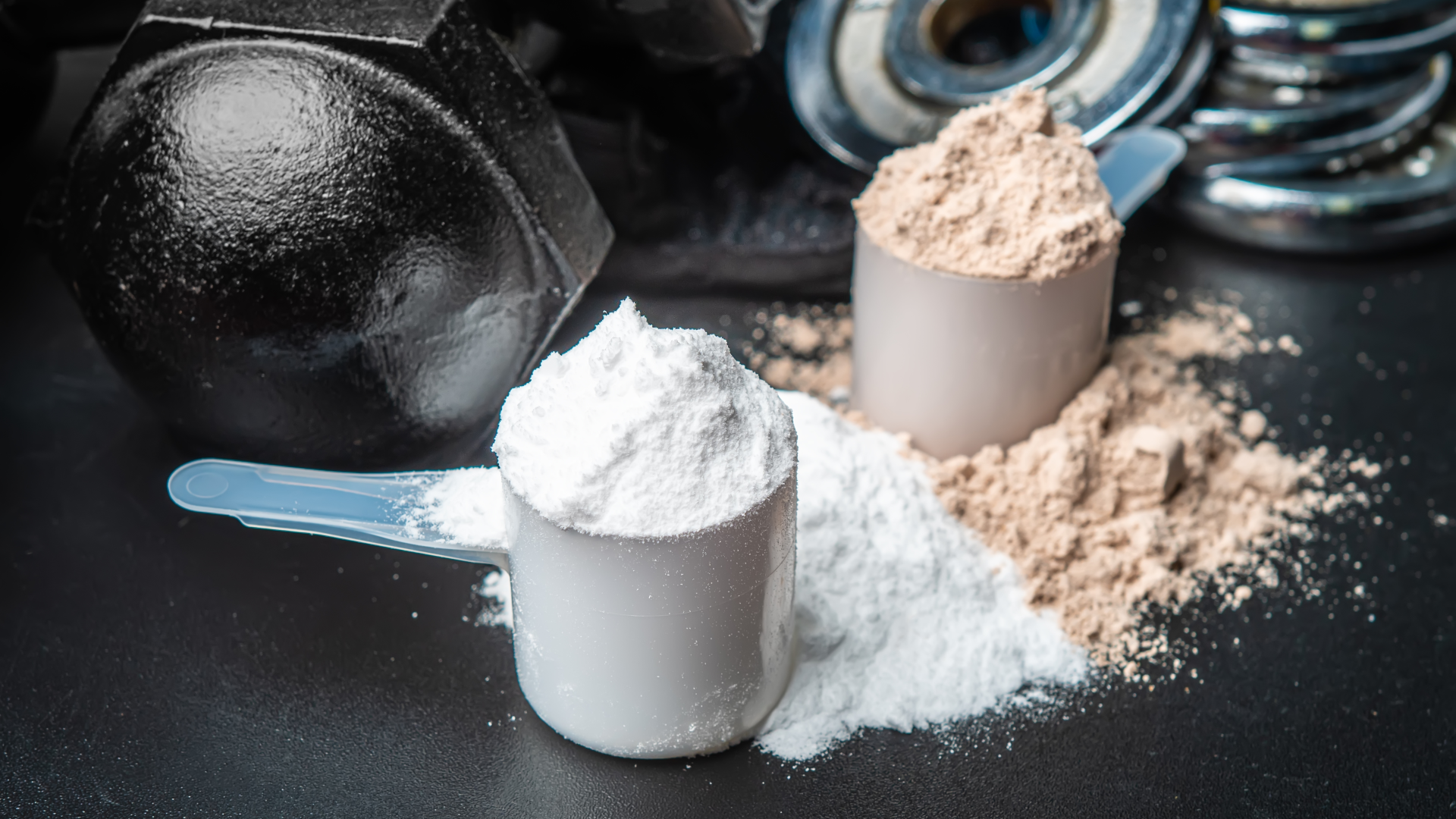Grab your cheat sheet |
You have probably encountered a few protein powder variations in your search for the ultimate workout supplement.
Multiple types of protein are created from different sources - and they all have different nutritional content and benefits.
In this blog, we will focus on two of the most frequently used - whey protein powder and plant protein powder. Although there are multiple different types of plant protein, it’s a common alternative for those looking to add protein powders to their diet.
So in this blog, we’ll compare plant and whey protein powders to see which one might be the best for you.
Why do you need protein?
Protein is vital for daily function, and the more we ‘do’ the more we need i.e. those of us who spend a few hours in the gym or play a lot of sports every week need a lot more protein.
If you exercise regularly and your goal is to build muscle, you will need 1.2g to 2g of protein per kilo of body weight per day to ensure you get the most out of your fitness program.
There are several reasons why a protein-rich diet is vital for success:
How do you increase your dietary protein?
There are many ways to increase our dietary protein intake. We can eat more high-protein foods such as chicken, red meat, Greek yogurt or beans.
But if you try to reach the 2g per kilo mark from food alone while keeping your calories within your daily limit, you will quickly discover how difficult it can be.

This is where protein shakes can be beneficial. It is an easy way to increase your protein intake without eating more. Good quality shakes are fairly low in calories, so they are a great tool for those seeking body recomposition.
There are a variety of options to choose from, but this article focuses on comparing two of the most widely purchased; whey protein and plant protein.
By the end of this blog, you will be much more informed on which of the two is the right choice for you.
Whey Protein vs. Plant Protein: what are the main differences
There are quite a few differences between whey and plant protein, but it’s also a good idea to remember that there are various plant protein types, including pea, soy and hemp.
So while we share general differences, it’s worth noting that each type of plant protein will vary.
What they are made from
The main difference between the two is that whey protein is a by-product of the milk production process, which means it is unsuitable for vegans, whereas plant protein is completely vegan.
This also means whey protein isn’t ideal for people with severe lactose intolerance. However, different whey protein products have different lactose levels in them.
Many whey proteins, including Crazy Nutrition’s TRI-PROTEIN formula, are suitable for vegetarians. If you are a vegetarian and you are wondering if this is one of those things you may as well go fully plant-based on, think twice. There are a few reasons why whey protein is a superior product to plant protein, so this might be a part of your diet where you should allow a little dairy…
Complete Proteins - Essential Amino Acids
Whey protein and plant protein are both ‘complete’ proteins. This means they have all the essential amino acids required for MPS, unlike incomplete proteins like pea or brown rice protein. In practice, this means that you can use both whey protein and plant protein shakes as stand-alone products that don’t require any dietary adjustments or further supplements to activate post-exercise muscle growth.
However, it isn’t as simple as having a good variety of essential amino acids; the concentration of these amino acids is also important.
You may have heard of the “Leucine Trigger Hypothesis” - the idea that the amino acid Leucine is key for triggering muscle growth. While both whey and plant proteins contain leucine, whey has higher levels. It also has higher levels of other important Branched Chain Amino Acids (BCCAs), including Methionine and Lysine. This gives whey protein the advantage with regards to firing up MPS.
Digestion
Which protein is easier to digest?
Well, that really depends.
Suppose you have irritable bowel syndrome (IBS) or any other digestive issues. In that case, we recommend trying out a few different protein supplements until you find one that works harmoniously with your digestion.

Whey protein powder is most likely to affect those sensitive to lactose, while plant-based protein powders should be avoided by those sensitive to FODMAPs.
Digestibility
This is slightly different from digestion (although the two are linked). Digestibility refers to our body's ability to process and use the nutrients contained within the protein powder.
The protein found in plants, whether a protein shake or spinach, is more difficult to digest than animal-based protein. Plant cells have a cell wall that houses all the good stuff inside - we have to break down this wall by cooking or fermenting the plant or by physically chewing through the walls. This is why you need to really chew your spinach.
Creating plant protein powders makes them easier to digest, but it is still not as easy for our bodies to utilize as whey protein. Whey protein powders are made from animal cells meaning they don’t have a cell wall. Our body can therefore absorb the nutrients quickly and easily.
A word of warning; if you are taking a protein powder that your body is having trouble digesting (i.e., you have an upset stomach), then chances are your body isn’t absorbing the nutrients efficiently. So ensure you use a product that ‘sits well’ with you.
The table below summarizes the differences and refers to high-quality protein products.
|
Whey Protein |
Plant Protein |
|
|
Source |
Milk |
Nuts, grains, legumes, seeds, and beans |
|
Complete Protein |
Yes |
Yes |
|
BCCAs Concentration |
Excellent |
Good |
|
Digestibility (how effectively we can absorb the protein) |
Excellent |
Average |
|
Lactose-Free |
No |
Yes |
|
Vegetarian |
Usually - check the specific product |
Yes |
|
Vegan |
No |
Yes |
|
Gluten-Free |
Check Specific Product |
Check Specific Product |
|
Contains Soy |
Usually no - check the specific product |
Some do - check the specific product |
|
The amount required to stimulate MPS |
20g |
30g or more |
|
Helpful for curbing cravings and weight loss |
Yes |
Yes |
Whey Protein or Plant Protein. Which is better?
Generally, whey protein is a higher-quality protein than plant protein, but quality also varies from brand to brand. Whichever you choose, you should look for a product with good reviews and a good protein-to-calorie ratio (at least 20g per 100 kcal).
At the time of writing, Crazy Nutrition’s TRI-PROTEIN formula is rated at 4.7 out of 5 stars by consumers, and each flavor has at least 21g of protein per serving. It is also certified vegetarian-friendly.
Whey protein is the best product to encourage muscle growth, so unless you have ethical or dietary requirements preventing you from using it, we always recommend you include whey protein as part of your health and fitness program.



